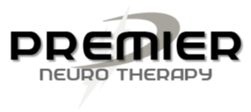How Can Neuro Therapy Help With Surgery Recovery?
|
If you’re on this page, the thought of surgery recovery can be daunting.
Surgery affects our ability to workout, sleep, compete, and even do every day tasks around the house. It’s amazing what simple tasks can be affected when our range of motion is limited and pain levels are elevated. It’s even more frustrating when it feels like the process is going way more slowly than expected and physical therapy doesn't seem to be getting the job done. |
In most cases, the people who are visiting this page fall into 1 of 3 categories:

You take pride in maintaining an active lifestyle (or used to), but a recent surgery is causing you to take a break. A friend, family member (or maybe even something on social media) told you Neuro Therapy is a faster way to get better and back to performing at a high level.

You had a surgery months (or even years) ago and are starting to wonder why you haven't noticed any improvement or improvement has been slower than expected.. You’ve tried everything that doctors recommended to help with recovery after surgery, with little success. At this point, they may have even told the surgery just wasn't successful, and you'll have to live with it. But if there’s something out there that can help you solve the problem, you'd like to learn about it.

You’ve been told by a doctor that another surgery will be required to fix the problem, and going under the knife again is the last thing you want to do. You're worried it might not work again or the recovery process will be even longer than the first time around, and you're exploring alternatives to see if there’s a way to avoid a second surgery all together.
If any of these are you, it’s likely that you’ve started to put a few pieces together.
Maybe there's been a lingering tightness in some areas around the incision,
Or you feel yourself compensating or moving differently (do you ever feel yourself shying away from putting too much stress on the area of the surgery?).
It could even feel like certain muscles just don’t want to “activate” the way they used to.
If you could only loosen up a few muscles or start activating them again, you know the surgery recovery would start to feel better and allow for more mobility.
But every time you think you’re feeling better and decide to push it, things just tighten or swell back up again.
All of these feelings – tightness, moving differently (compensation patterns), muscle activation, and “flare ups” are driven by the nervous system.
When you experience a surgery, the nervous system starts to use the area differently.
In fact, the nervous system drives muscle activation, which drives movement.
If that sequence isn’t firing properly, the surgery recovery process can be difficult, range of motion becomes limited, and pain signals amplify.
During Neuro Therapy, we “tap in” to the nervous system using electricity in order to determine where muscles aren’t activating properly... think of these as your "weak links."
Once we find them, we’re able to precisely target those areas and re-train the nervous system to utilize the muscles properly.
When the muscles start to work properly again, the area repaired by surgery can start to function normally (and without pain).
But you don’t have to take my word for it – I understand that Neuro Therapy is new and what I’m saying is a little “outside the box.” I thought the same thing when I was introduced to the process 5 years ago.
For that reason, I want to help you gather all the information needed to determine if Neuro is the right fit for your surgery recovery.
I want you to learn about Neuro Therapy and experience what it can do for you without any risk or obligation.
Maybe there's been a lingering tightness in some areas around the incision,
Or you feel yourself compensating or moving differently (do you ever feel yourself shying away from putting too much stress on the area of the surgery?).
It could even feel like certain muscles just don’t want to “activate” the way they used to.
If you could only loosen up a few muscles or start activating them again, you know the surgery recovery would start to feel better and allow for more mobility.
But every time you think you’re feeling better and decide to push it, things just tighten or swell back up again.
All of these feelings – tightness, moving differently (compensation patterns), muscle activation, and “flare ups” are driven by the nervous system.
When you experience a surgery, the nervous system starts to use the area differently.
In fact, the nervous system drives muscle activation, which drives movement.
If that sequence isn’t firing properly, the surgery recovery process can be difficult, range of motion becomes limited, and pain signals amplify.
During Neuro Therapy, we “tap in” to the nervous system using electricity in order to determine where muscles aren’t activating properly... think of these as your "weak links."
Once we find them, we’re able to precisely target those areas and re-train the nervous system to utilize the muscles properly.
When the muscles start to work properly again, the area repaired by surgery can start to function normally (and without pain).
But you don’t have to take my word for it – I understand that Neuro Therapy is new and what I’m saying is a little “outside the box.” I thought the same thing when I was introduced to the process 5 years ago.
For that reason, I want to help you gather all the information needed to determine if Neuro is the right fit for your surgery recovery.
I want you to learn about Neuro Therapy and experience what it can do for you without any risk or obligation.
So here's what I do for prospective clients. I offer a free, 1 on 1, 90 minute Neuro Therapy session. You'll get to go through a full Neuro Therapy session from beginning to end and have plenty of time to ask questions.
During the session, you can expect to learn the following about your surgery recovery:

What muscles are not activating properly and contributing to your less than optimal recovery after surgery

What movement patterns and ranges of motion are contributing to your slow surgery recovery
What movement patterns and ranges of motion are contributing to your slow surgery recovery

How we can work together to fix it
Who knows, you might even experience a little bit of relief or increase in range of motion.
By the end, you'll have all the information you need to make a decision on whether Neuro is the right fit for you.
Sound like something that's worth trying? Just click the button below and fill out the 35 second form to apply. After reviewing your application, we’ll give you a call to find a date a time that work best for you.
By the end, you'll have all the information you need to make a decision on whether Neuro is the right fit for you.
Sound like something that's worth trying? Just click the button below and fill out the 35 second form to apply. After reviewing your application, we’ll give you a call to find a date a time that work best for you.
If you’re still not quite sure about scheduling and would rather speak to a member of my team on the phone first, you can click here instead:
Premier Neuro Therapy therapists are experienced in helping people to recover from the following surgeries:
Knee replacement recovery, Hip replacement recovery, Rotator cuff surgery recovery, Carpal tunnel surgery recovery, ACL surgery recovery, Meniscus surgery recovery, Meniscus tear recovery, Hip surgery recovery, Knee surgery recovery, Spinal fusion recovery, Shoulder surgery recovery, Total knee replacement recovery, Back surgery recovery. Don't see yours listed here? Contact us to learn how we can help.
Knee replacement recovery, Hip replacement recovery, Rotator cuff surgery recovery, Carpal tunnel surgery recovery, ACL surgery recovery, Meniscus surgery recovery, Meniscus tear recovery, Hip surgery recovery, Knee surgery recovery, Spinal fusion recovery, Shoulder surgery recovery, Total knee replacement recovery, Back surgery recovery. Don't see yours listed here? Contact us to learn how we can help.


